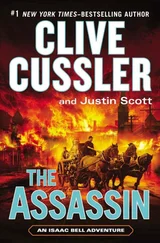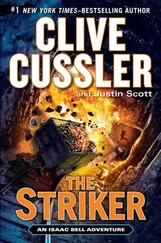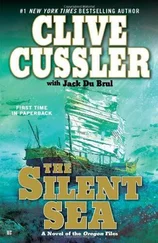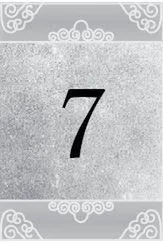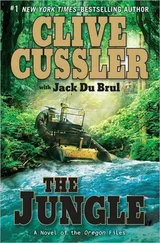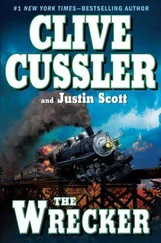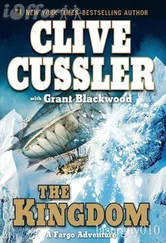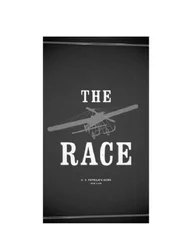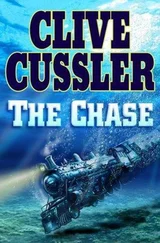She looked around in amazement.
It was neat and cosy as a dollhouse. It had sleeping bunks along the walls with warm blankets and a little kerosene stove with a teakettle, and she suddenly realized she would give anything for a warm drink. The kettle had water in it. She struck a match to the kerosene, and while the water heated she found a tin of tea and another of sugar. When she found a jar of blackberry jam, she thought she would cry with happiness.
She was spooning the jam from the jar when her active gaze fell on a map of the railroad system that covered one wall. She saw why the route was lonely. The tracks ran in a remarkably straight line southeast from Berlin, through Güsten, Wetzlar, and Koblenz to Metz, in Alsace-Lorraine. The Berlin-Metzer Bahn bypassed cities like Leipzig and Frankfurt in favor of a direct route. This was what people called the Kanonenbahn , the Army’s strategic railway, built with gentle curves and easy grades to transport cannon and soldiers quickly to the border to defend against French invasion. Looking east on the map she saw similarly straight lines radiating from Berlin across Poland to hold the Russians at their border.
Sipping hot tea, the first warm drink she had had in two days, Pauline traced her route from Berlin and saw with a sinking heart that she had a long way to go. Suddenly a train whistle blew. It was coming from the east, headed toward France. She doused the lantern, unlocked a door, jumped to the siding, and hid behind the caboose in hopes of hopping onto the approaching train. She had done this twice already and had survived it only because Detective Curtis had turned unusually talkative one evening when she couldn’t go home. He had told her that when he was her age “riding the rails” older hobos had taught him to jump on the front of a moving railroad car, not the rear. If you fell from the front, you fell to the side. If you fell from the back, you fell under the train.
She crouched on the embankment, shielding her eyes so as not to be blinded by the locomotive’s headlight. It sounded like it was coming too fast, but the instant the locomotive passed she ran alongside, scrambling to catch onto a boxcar ladder. She tripped on a tie and fell, rolled down the embankment, and jumped up. Too late. It was racing by.
Dejected, she went back inside the caboose, wrapped herself in blankets, and fell asleep on a hard mattress. Utterly exhausted, she slept without moving. Deep in the night she dreamed something was shaking her, but it stopped. Later she dreamed she was on a tram rolling along a Berlin street, lurching as it switched tracks. The tram stopped. Later it started again.
Suddenly she sat up, wide awake. The caboose was moving. She jumped to a window and pulled back the curtain on a blur of lights. The caboose was passing through a town at sixty kilometers an hour, attached to the back of a train that was picking up speed.
West to Paris?
East to Berlin?
She heard a rattling at the door, louder than the clatter of the wheels. The brakemen who had coupled the caboose to the train were unlocking the door.
* * *
Irina Viorets and Christian Semmler were watching Imperial’s latest film projected on a screen in Semmler’s ninth-floor apartment before showing it to their distributors. It ended with a bang-up chase involving brewery trucks dropping beer barrels, a puffing locomotive, and a motorcycle that jumped the barrels and landed beside a Pierce-Arrow limousine. A bride in a flowing wedding dress jumped out of the limousine and jumped onto the motorcycle, which raced off, pursued by beer trucks, careened onto railroad tracks, and was chased by a train.
Suddenly Semmler leaned forward and stared hard at the flickering screen.
“Who is that motorcyclist?”
“I hope it’s an extra and not a good actor,” answered Viorets. “He’s not going to live long.”
“He looks like Isaac Bell.”

“How can you tell under those goggles?”
“The way he straddles the machine.”
“But Isaac Bell is a Connecticut insurance executive. It can’t be Bell.”
“Of course not,” Semmler mused. “I can’t imagine an insurance man pursuing such a dangerous line of work.”
The picture ended happily with the eloping couple married in a Lutheran church and boarding a Hamburg-America ocean liner for a honeymoon in Germany.
“Irina, I want you to engage Marion Bell.”
“Bell’s wife?”
“How soon can you get her here?”
“Tomorrow, if she’s willing. She’s visiting her father in San Francisco.”
“She should make our history of the western railroads.”
“Why her?”
“I’m betting she’s ready to make something big.”
Irina Viorets looked at Semmler sitting in the shadows. The German general was a strange one up to stranger things, but he often had good ideas. He knew what he was up to in the moving picture business. The Iron Horse , Imperial’s history of the western railroads, would be an ambitious two- or three-reeler. Marion Morgan would bring a topical filmmaker’s sensibility to the story and all the skills necessary to take pictures of real events out-of-doors.
“I’ll telephone her long-distance. I just hope she hasn’t engaged with Preston Whiteway already.”
“Tell her if she’ll leave Whiteway she can have a fleet of locomotives at her disposal. Promise her you’ll put Theda Bara, King Baggot, and Florence Lawrence under contract.”
“She’s not the type to walk out on her contract.”
“Tell her she can tie Billy Bitzer and his camera to the front of a locomotive if that will make her happy. Just get her here! Immediately.”
“I’ll telephone San Francisco.”
“And then you get busy writing a scenario that features handsome German-Americans working on the railroad.”
“That much,” said Viorets, “I had already figured out.”
Semmler barred the door when she left.
For a man who was supposed to be a wealthy insurance executive, Isaac Bell had, too many times, appeared at exactly the wrong moment with a gun in his hand. Now he was pretending to be a movie extra — in an Imperial film, no less.
Semmler had already wondered about Bell. Transmitting on the Los Angeles German vice-consul’s private wire, he had ordered the New York consul general to investigate Dagget, Staples & Hitchcock. The Hartford insurance company was genuine, the consul general had reported back, and Isaac Bell was listed as a partner.
Semmler was not convinced. The Leipzig Organ & Piano Company appeared genuine, too. And who was more “one of the boys” than Leipzig’s well-liked American sales representative, Fritz Wunderlich?
Isaac Bell had stopped him from kidnapping Lynds and Professor Beiderbecke from the Mauretania. Isaac Bell had stopped him from taking Lynds off the Golden State Limited. And now a man who looked very much like Isaac Bell was pretending to be a moving picture stunt performer. He would find out whether it was Bell.
But until he knew for sure, General Major Christian Semmler wanted Isaac Bell’s wife in easy reach.
* * *
At the sound of the Brakemen unlocking their caboose door, Pauline snatched a blanket and scrambled up the ladder, out the hatch, and onto the roof just as they burst in complaining about the cold. The wind of the speeding train’s passage hit her like a fist. It smelled of coal smoke and rain. Across the forests and farmland, black clouds blacker than the locomotive’s smoke filled the sky. She crouched behind the cupola, seeking shelter.
Читать дальше




